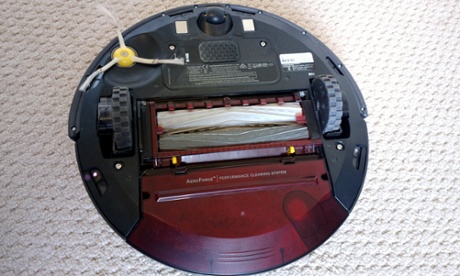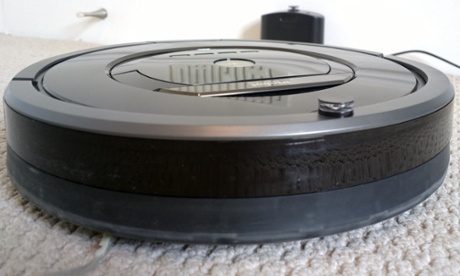
In science fiction, robots are usually attempting to take over the world and kill us all. In real life, it turns out they can be rather useful for cleaning the lounge carpet. Terminator – of dust!
The iRobot Roomba 880 is the current king of the robotic vacuums, but is it any good and how does it compare to a standard vacuum?
What is that thing against the wall?
The Roomba certainly doesn’t look like vacuum. The puck-shaped disc is approximately the size of a car’s steering wheel in diameter and the height of a mug.
On the top are four buttons and a handle, with a big central “clean” power button and four other buttons with which to set the clock, cleaning schedule, return the robot to its dock, or concentrate on a single, troublesome spot. Hasta la vista, dog hair...
Programming
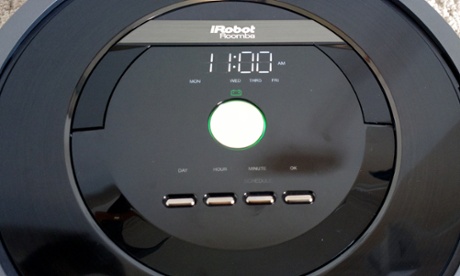
Programming the robot for a schedule is easy. Select the day, input a time and press “OK”. As long as the clock is set correctly, the Roomba will trundle off on a cleaning run and return to base when it has finished, or run out of battery.
In testing, I experienced a couple of issues with the clock going wrong, once caused by a power surge, and once when the Roomba got trapped in a room and ran out of battery. It lost time when it was recharged and I failed to notice, which meant it turned on in the middle of the night and woke everyone up.
The Roomba 880 is capable of cleaning several rooms on one charge, and will spend a maximum of 25 minutes in each room before moving on. Two “Virtual Wall Lighthouses” are included in the box. They simulate a wall in doorways, preventing the robot from passing into the next room until it has finished in the first, and then help it find its way back to the charging base.
Once the robot has finished cleaning, or when the bin is full or the battery runs low, it will automatically return to the charging dock.
Cleaning
Disappointingly, on its first outing the robot doesn’t clean as well as a human with a decent, ordinary vacuum cleaner. But Roomba is designed to clean once a day rather than once a week, which means the first run takes a while because the bin is small and has to be emptied several times.
After a couple of days the bin only needs emptying once or twice a week, depending on the floor type and size of the cleaning area. In a medium-sized two-bedroom flat, I ended up emptying the bin and cleaning the filters once a week.
The spinning bush and central suction band do a solid job of cleaning even the edges of a room. Some spots that Roomba can’t reach will need to be cleaned with a handheld vacuum – including stairs – but overall the cleaning is quite impressive.
The 880 also comes with a remote control, which can be used to steer it towards a particularly dirty patch. It can also be used to steer the robot away if it gets stuck under something, though generally it can get under most furniture without an issue.
If the brush gets tangled up with cables or loose paper, the main suction channel can be removed and cleaned by releasing a few screws or clips – a two minute job.
Maintenance
The drop sensors, the bin, the air filters and the front wheel need regular maintenance: iRobot recommends once a week, but you can probably get away with less than that. The air filters need cleaning by just tapping on the side when the robot’s bin is emptied.
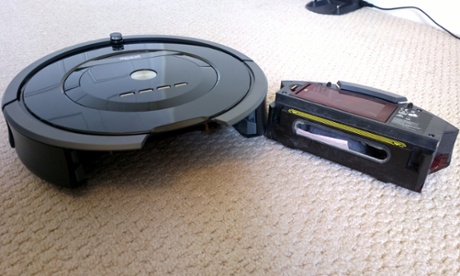
Price
The iRobot Roomba 880 costs £600, which is at least £300 more than most other normal vacuum cleaners.
Verdict
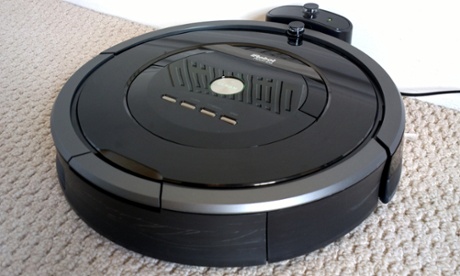
The iRobot Roomba 880 is a much better vacuum cleaner than you’d expect. As a robot it does what it says on the tin – cleans the floor when you set it to and returns to base afterwards. It requires little in the way of maintenance and just gets on with the job.
But it does take on a life of its own. I have become surprisingly attached to it, like a little robotic cleaning pet. When it has caught and screwed up bits of paper or got stuck somewhere, I’ve felt more sorry for it than annoyed. I’ve then made a special effort to keep things off the floor, which is all round a good thing.
Whether the 880 is worth the cost over a traditional vacuum cleaner comes down to how much you dislike vacuuming. Cheaper Roomba models are available which are more in line with the cost of a traditional cleaner, plus it probably works out cheaper than hiring a human cleaner.
For those that are very tidy and constantly clean, the Roomba probably isn’t for you, but for the rest of us, robotic vacuum cleaners are finally worth buying. I’m even thinking about buying another one for upstairs.
Pros: hassle-free cleaning, that just-vacuumed feeling without the effort every day, easy to maintain and programme, remote control, effective cleaning
Cons: expensive, will need another cleaner for the stairs and odd bits, needs filters changing
